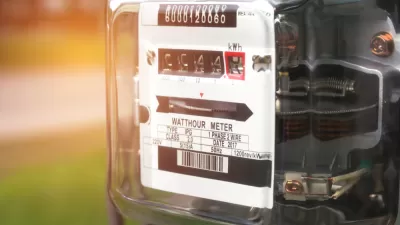It may seem counter-intuitive to charge extra fees for the cleanest, most fuel-efficient vehicles on the road today - including those that qualify for a federal $7,500 credit. But ten states are doing just that to keep roads well-funded.
Raven Clabough explores the controversy behind charging annual fees for hybrid vehicles - including hybrid SUVs, as well as vehicles that run on electricity, not gasoline or diesel, and thus pay no fuel taxes, to supplement gas tax revenue.
Rightly or wrongly, hybrids and electric vehicles (EVs) are taking some blame by state legislators for decreasing fuel tax revenues. The Institute on Taxation and Economic Policy "estimates that state and local gas-tax revenue fell 7 percent to $38 billion between 2004 and 2010."
Both hybrid and electric vehicle sales have indeed been increasing, perhaps making them an easy target for legislators less willing to increase gas taxes or devise new vehicle-miles-traveled (VMT) fee programs that would be applied to all vehicles.
Last year, Toyota Motor Corp. sold 236,659 Prius hybrids, a 73-percent increase from 2011. Likewise, General Motors doubled its sale of hybrids last year.
The Electric Drive Transportation Association reports a 41% increase in March sales over February, bringing the total of all plug-in vehicles sales since December, 2010 to more than 100,000.
"I think so far what we're seeing is the trend seems to be either an additional annual fee or some type of registration fee seems to be much more popular than the miles-driven tax, because that is a newer technology and raises some privacy concerns," said Kristy Hartman, a transportation and environment analyst for the National Conference of State Legislatures.
Arizona state Senator Steve Farley, a Democrat from Tucson who wrote a bill to tax electric cars, explains:
"The intent is that people who use the roads pay for them. Just because we have somebody who is getting out of doing it because they have an alternative form of fuel, that doesn't mean they shouldn't pay for the roads."
Republican North Carolina Senator Neal Hunt supported "an additional $100 annual registration fee for electric car owners and a $50 fee for hybrid drivers", asserting "that the provision is the best way to insure that all drivers are contributing their fair share." The bill is pending in the N.C. House.
"It just seems logical to me that they should pay a small fee for the use of the highways and the wear and tear they put on the highways," he said.
Electric vehicle proponents look to the VMT fee as the best way to charge EV users for road funding. However, one group doesn't categorically rule-out exclusive fees.
According to Jay Friedland, legislative director for the advocacy group Plug In America, legislators should be asking fuel efficient drivers to pay their fair share through additional fees, but should wait until the number of alternative-fuel vehicles reaches 100,000. North Carolina presently has approximately 30,000 registered hybrids and electric cars.
The push to tax EV and hybrid drivers might be more justifiable if those same states were attempting to increase gas taxes rather than just looking to increase revenue from a small group of motorists driving, for the most part, cleaner, more fuel-efficient vehicles. Regrettably, that has not been the case. In fact, this year Virginia passed a new, annual hybrid/EV fee of $64 while eliminating its state gasoline excise tax of 17.5-cents. The new 3.5% wholesale sales tax on fuel will result in reduced gas tax revenue.
To view a state's laws and incentives related to alternative fuels and advanced vehicles, go to the U.S. Department of Energy's Alternative Fuels Data Center, select Laws & Incentives, click on "State Incentives and Laws", and select a state from the map or menu.
FULL STORY: States Propose Fees on Hybrids to Cover Gas Tax Losses

Maui's Vacation Rental Debate Turns Ugly
Verbal attacks, misinformation campaigns and fistfights plague a high-stakes debate to convert thousands of vacation rentals into long-term housing.

Planetizen Federal Action Tracker
A weekly monitor of how Trump’s orders and actions are impacting planners and planning in America.

In Urban Planning, AI Prompting Could be the New Design Thinking
Creativity has long been key to great urban design. What if we see AI as our new creative partner?

King County Supportive Housing Program Offers Hope for Unhoused Residents
The county is taking a ‘Housing First’ approach that prioritizes getting people into housing, then offering wraparound supportive services.

Researchers Use AI to Get Clearer Picture of US Housing
Analysts are using artificial intelligence to supercharge their research by allowing them to comb through data faster. Though these AI tools can be error prone, they save time and housing researchers are optimistic about the future.

Making Shared Micromobility More Inclusive
Cities and shared mobility system operators can do more to include people with disabilities in planning and operations, per a new report.
Urban Design for Planners 1: Software Tools
This six-course series explores essential urban design concepts using open source software and equips planners with the tools they need to participate fully in the urban design process.
Planning for Universal Design
Learn the tools for implementing Universal Design in planning regulations.
planning NEXT
Appalachian Highlands Housing Partners
Mpact (founded as Rail~Volution)
City of Camden Redevelopment Agency
City of Astoria
City of Portland
City of Laramie




























